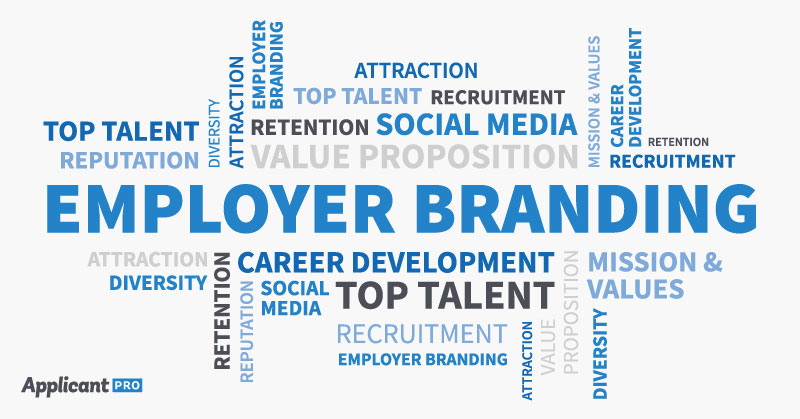

How Is The Polycrisis Affecting Your Company Culture?
I'm sure you are well aware that we are currently facing an HR polycrisis. We are looking at multiple, overlapping crises converging to challenge human resources and, ultimately, company culture.
Let's explore the key effects of this problem and discover how you can turn these challenges into opportunities for growth and innovation and a culture where people want to work.
Employee Stress and Burnout: The Pressure Cooker Effect
When crises hit, workloads skyrocket, uncertainty looms, and stress becomes the unwelcome office guest. Times of crisis often lead to increased employee burnout, dampening morale, and an ever-growing shadow over the workplace.
According to a recent Viser survey, of the 89% of employees who reported having felt burnt out in recent years, 70% of them said they'd be willing to quit their jobs over that... don't let the polycrisis create a culture of burnout in your office!
Employees feeling the heat might also struggle to maintain their usual productivity, and the overall vibe can shift from vibrant to exhausted as the daily pressures at work get to them.
Communication Breakdowns: Lost in Translation
In a crisis, good communication often flies out the window. Misunderstandings pop up, trust dwindles, and team cohesion falls apart. Poor communication can turn your workforce into a disjointed mess, where everyone feels like they're on different pages. When this happens, trust disappears, making the office an uncomfortable place to be.
Reduced Engagement and Motivation: The Disconnect Dilemma
Continuous crises can leave employees feeling like they're drifting without a paddle. Disengagement and disconnection from work are common outcomes, leading to lower productivity, diminished creativity, and general dissatisfaction spreading around the office.
Make your job stand out!
A job is one thing, but a job that employees enjoy is another. Discover how you can create a better job with our Company Comparison tool!
It's a perfect storm for a lackluster company culture.
Talent Retention Challenges: The Great Escape
A team facing multiple challenges can turn talent retention into an uphill battle. High turnover rates disrupt team dynamics and breed a culture of instability and uncertainty.
According to FitonHealth.com, organizational culture changes are the #2 leading cause of employee turnover (second only to employee burnout... as mentioned above).
Keeping your best talent becomes top priority as employees start looking for more stable environments, and as word gets out about the uncertain culture in your company, recruiting new talent becomes even harder.
So....
-
Do you find yourself noticing more employee burnout in your office?
-
Are communication challenges growing more and more common amongst your employees?
-
Is employee engagement plummeting?
-
Is it getting harder and harder to keep your employees?
If so, your company culture may be suffering and falling victim to the polycrisis we're witnessing... but what can you do about it?
Changes in Leadership Styles: The Empathy Evolution
Crises necessitate changes in leadership styles. Leaders must become more empathetic, flexible, and transparent to guide their teams through tough times efficiently. The way your company's leaders respond to the current polycrisis can significantly influence company culture, either positively or negatively.
Focus on Diversity and Inclusion: A Path to Positive Change
Crises often highlight existing inequalities, prompting companies to prioritize diversity, equity, and inclusion (DEI... interrelated concepts that aim to create a fair, respectful, and inclusive environment for all employees) initiatives. A strong focus on these areas can positively reshape company culture, fostering a more inclusive and supportive environment where everyone feels valued and accepted.
Innovation and Resilience: Thriving Through Adversity
It's all about turning challenges into opportunities through innovation and resilience within your organization. Companies that successfully navigate multiple crises often emerge stronger, with a culture that values creative problem-solving and agility.
Resource Allocation and Prioritization: Fairness in Focus
During a polycrisis, companies must reevaluate resource allocation and prioritize critical areas. This can impact employee perceptions of fairness and influence the overall workplace environment. Transparent and fair resource management is key to maintaining trust and morale.
Can Your Company Culture Thrive During A Polycrisis?
Look, navigating the HR Polycrisis is going to take a lot of effort... it will require clear communication, robust support for employee well-being, and a culture of resilience and adaptability. But by tackling these areas head-on, organizations can not only survive but thrive, emerging stronger and more cohesive in the face of adversity.
By understanding and addressing the effects of the HR Polycrisis, companies can transform challenges into opportunities, fostering a dynamic and resilient company culture that stands the test of time.

SECRET WEAPON: The Company Comparison Tool
Learn how you can stand out with our Company Comparison Tool!
Share this article
Related Articles

Top Tips for Talent Acquisition in 2025: Strategies That Actually Work
Discover top talent acquisition strategies for 2025. Learn how to prioritize candidate experience, leverage AI ethically, embrace flexible work, and build a strong employer brand to attract and retain top talent in a competitive job market.

Elevate Your HR Strategy with ApplicantPro's Full-Suite of HR Tools
Simplify HR with ApplicantPro's all-in-one solution. Our customizable tools streamline recruitment, onboarding, payroll, and benefits management for growing businesses.

Building Your Employer Brand: Why it Matters and How to Do it Right
Build a strong employer brand to attract top talent, reduce turnover, and boost morale. Learn actionable steps to create an authentic, compelling company reputation.